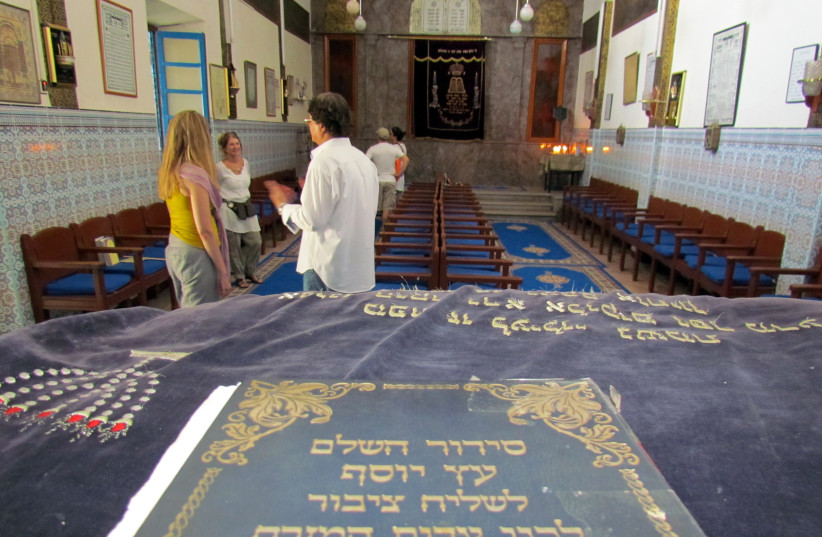Authorities in Morocco completed a renovation of the historic Jewish cemetery in the city of Meknes, part of a broader overhaul of Jewish heritage sites that coincides with the country’s reestablishment of diplomatic ties with Israel.
The restoration was finished earlier this month ahead of a visit by several dozen Jews, many of them from Israel, on May 19, AFP reported. The 10-acre graveyard contains thousands of bodies and is centuries old. Many of the graves are built atop older ones.
Jews from Israel and beyond have visited Meknes, where only a handful of Jews live permanently, for decades.
The pilgrimages reflect the deep roots that Jews grew in this city in northern Morocco, where thousands of refugees settled after fleeing the Inquisition in Spain and Portugal in the 15th and 16th centuries.
They were able to prosper in ways that were impossible then in the Iberian Peninsula. But the community’s life in Meknes, and in Morocco generally, were far from harmonious. About 180 Jews were murdered in pogroms in Meknes in 1728, and another round of killings, instigated by the sultan Yazid, occurred in 1790.

Some of the community’s synagogues were stolen and turned into mosques that year, according to the ANU Museum of the Jewish People in Tel Aviv. More atrocities occurred in 1811 and 1894, when Meknes still had over 4,000 Jews.
French rule in Morocco brought the Jews relief and their community doubled in size by 1931, but the violence against them resumed during World War II. By 1970, only a few Jews remained in Meknes after the majority of the community of about 15,000 joined waves of immigration to Israel.
The cemetery and hundreds of other Jewish heritage sites began slipping into disrepair.
But in 2010, King Mohammed VI of Morocco started a renovation program for Jewish heritage sites in his country. Dozens in Morocco and beyond have been restored and preserved, including the Jewish Museum of Casablanca and a new Jewish culture center in Essaouira, another former hub of Moroccan Judaism.
Today, about 2,500 Jews live in Morocco on a permanent or semi-permanent basis.
In 2020, Morocco and Israel rekindled diplomatic relations as part of the Abraham Accords. The two countries had first established such ties in 1994 following the Oslo Accords between Israel and the Palestinians, but Morocco severed them following the second Intifada in the early 2000s.
Following the rapprochement, Moroccan and Israeli airlines began operating direct flights to and from Ben Gurion Airport near Tel Aviv, dramatically boosting the volume of touristic travel between the two countries. About 200,000 Israelis are expected to visit Morocco in 2022, according to Israel’s Channel 13.
